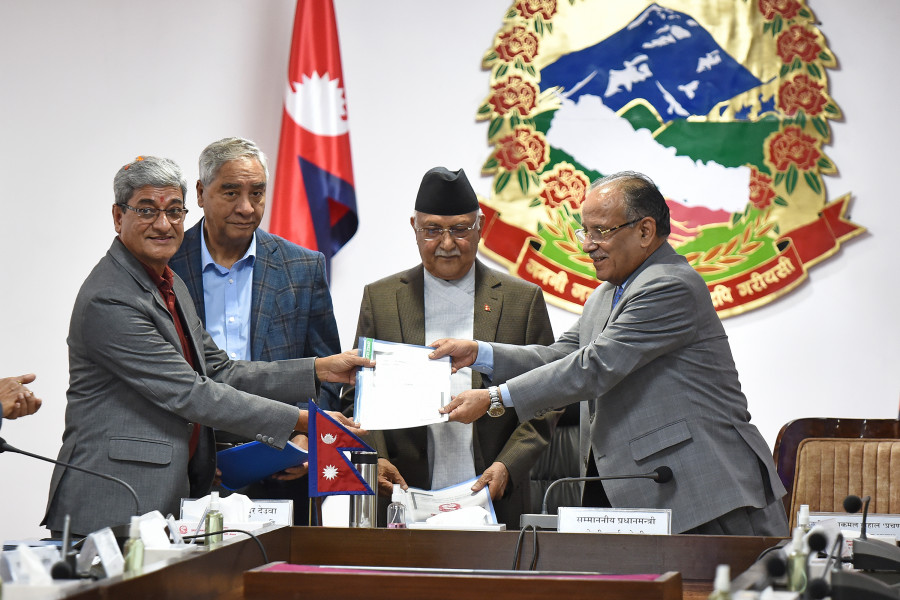Editorial
Don’t squander this moment
A rare opportunity has presented itself to bring the peace process to a desired end.
The taskforce of the three major political parties—the Nepali Congress, the CPN-UML and the Maoist Centre—formed to find meeting points on the contentious provisions of the bill to amend the transitional justice-related law has submitted its report to the chiefs of three parties. The points of the agreement forged by the three-member panel were informally made public last week.
Again, most notably, on Wednesday the chiefs of all three parties jointly accepted the report and unequivocally committed to resolving the remaining task of the peace process. After getting the report, Prime Minister KP Sharma Oli vowed to expedite the bill and endorse it from Parliament without any further ado and then to swiftly implement it. In the prime minister’s words, this time, the amendment to the Enforced Disappearances Enquiry, Truth and Reconciliation Commission Act would be meaningful and the ‘remnants of the conflict’ will be dealt with once and for all. Chairman of the CPN (Maoist Centre) Pushpa Kamal Dahal, who led the decade-long Maoist insurgency, and Nepali Congress President Sher Bahadur Deuba, sounded as committed to finding closure.
Much optimism based just on Nepali leaders’ words may not be warranted. But, at times, important political achievements have been possible when leaders of these three parties have joined hands. Signing of the Comprehensive Peace Accord in 2006, management of arms and army of the Maoist party, constitution promulgation in 2015, among other knotty issues related to the peace process, took place based on such understanding among these forces. A major but crucial task that remains pending is delivery of justice to the victims, as envisioned in the CPA all those years ago.
Of the three parties, Dahal of the Maoist Centre and Nepali Congress’ Deuba often felt put under pressure to swiftly conclude the peace process, as these parties were directly engaged in the insurgency from opposite sides—much more than the UML. In the past when Deuba and Dahal tried to push the process, UML leaders appeared intent on hindering its progress, sometimes out of conviction and sometimes for purely political reasons. With Prime Minister Oli keen to conclude the process at a time of his government leadership, and Deuba and Dahal ready to capitalise on the rare opportunity, there could perhaps be no better time to take the peace process to its conclusion.
That said, the agreement among the leaders of the three parties is not sufficient. They must not forget that all they are doing is ultimately aimed at the victims. If the victims feel they are not getting justice, completing the process would be meaningless. Many have found the provisions proposed by the three-member panel largely progressive and fair, but a section of victims are still dissatisfied with a few conditions.
We urge the major politicians to strive to address the concerns of these holdout victims while giving final touches to the amendment bill. Trying to ram the bill through Parliament without such effort would be ill-advised. Addressing the concerns raised by the Supreme Court in its past decisions and winning the trust of the international community is as important. On the other hand, those advocating on the victims’ behalf would also do well not to seek a perfect solution to what is an inherently complex problem.




 10.12°C Kathmandu
10.12°C Kathmandu













